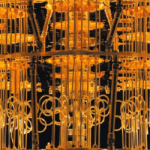Photonic quantum processor passes major quantum computing milestone

(IFLScience) One of quantum computing’s most significant milestones has been achieved, with a processor that can be programmed across all of its quantum gates ‘beating’ the most powerful classical computers at a task. IQT-News summarizes below.
The descriptor “beating” rather undersells the achievement, as the quantum processor took 36 microseconds to perform a task that would take existing supercomputers 9,000 years.
Processors will display quantum advantage when they can beat the best classical equivalent at a well-defined task. A paper in Nature claims to have done just that on a task known as Gaussian boson sampling. Borealis achieved quantum advantage by passing squeezed light through loops of optical fiber that act as delay lines, and by classifying photons by time or arrival rather than direction.
Borealis, the photonic processor described in the new paper,has been used to detect an average of 125 photons in repeated trials, peaking at 219 and easily shattering the previous record of 113.
Its makers, Canadian company Xanadu, describe Borealis as “the world’s first photonic quantum computer offering full programmability over all of its gates and capable of quantum advantage.” Borealis can also be accessed over the cloud.
IQT=News: Xanadu launches first public cloud-deployed computer with quantum computational advantage
To test Gaussian boson sampling, photons of light are sent through a network of beam splitters to be counted at a detector. The computer seeks to reconstruct the photons’ probability distribution based on the number counted and certain attributes. The more photons there are, the longer it would take classical computers to perform the calculations required to establish the distribution.



















